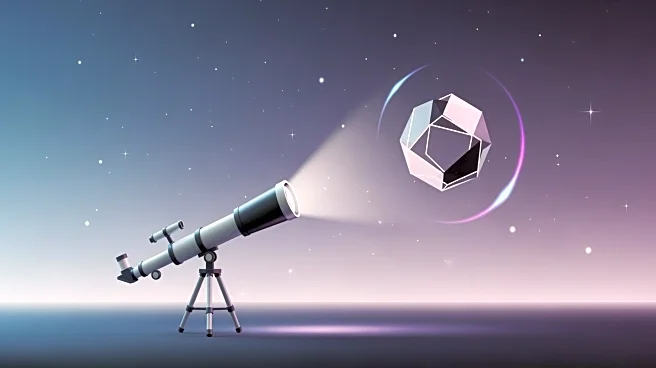What's Happening?
Dr. Colin Steele, an amateur astronomer with professional experience, is set to deliver a talk titled 'Astronomy in Flatland' on December 11, 2025. The event will be a hybrid meeting, accessible both in-person
and via Zoom. The talk is inspired by Edwin Abbott's 1885 book 'Flatland,' which explores a two-dimensional world. Dr. Steele will discuss how astronomy would function in such a universe, where gravity is inversely proportional to distance rather than following the inverse-square law. This change affects the shapes of orbits, seasons, eclipses, meteors, and auroras. The presentation will also touch on the concept of universes with different numbers of dimensions, concluding that a two-dimensional universe is particularly intriguing.
Why It's Important?
The exploration of a two-dimensional universe offers a unique perspective on the fundamental principles of astronomy and physics. By challenging the conventional understanding of gravity and celestial mechanics, Dr. Steele's talk encourages a re-evaluation of how these forces operate in different dimensional contexts. This can lead to broader discussions in the scientific community about the nature of our universe and the potential for alternative realities. Such intellectual exercises are crucial for advancing theoretical physics and can inspire new lines of inquiry in both academic and amateur astronomy circles.
What's Next?
Following the talk, there may be increased interest in the study of alternative dimensional universes within the scientific community. This could lead to further research and discussions at academic institutions and astronomy societies. Dr. Steele's presentation might also inspire other astronomers and physicists to explore unconventional theories and models, potentially leading to new discoveries or insights into the nature of our own universe.
Beyond the Headlines
The concept of a two-dimensional universe challenges the traditional three-dimensional perspective that dominates current scientific understanding. This exploration can have philosophical implications, prompting questions about the nature of reality and our place within it. Additionally, it highlights the importance of interdisciplinary approaches, combining mathematics, physics, and astronomy to explore complex ideas. Such discussions can foster a deeper appreciation for the diversity of thought and creativity in scientific exploration.










